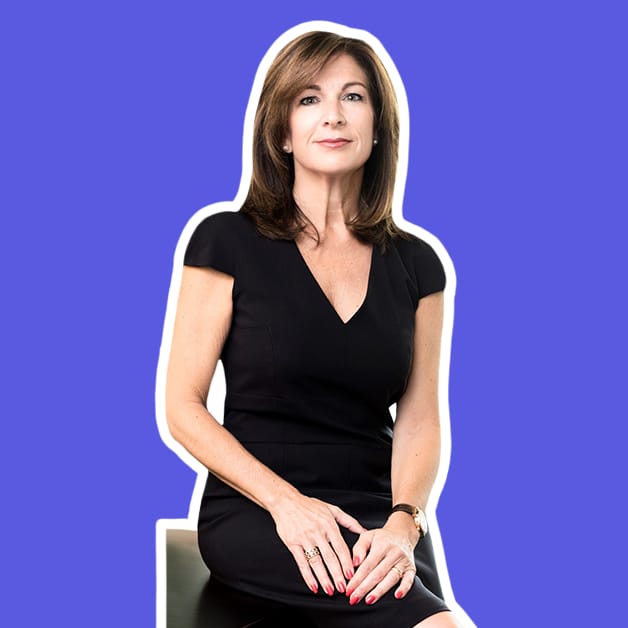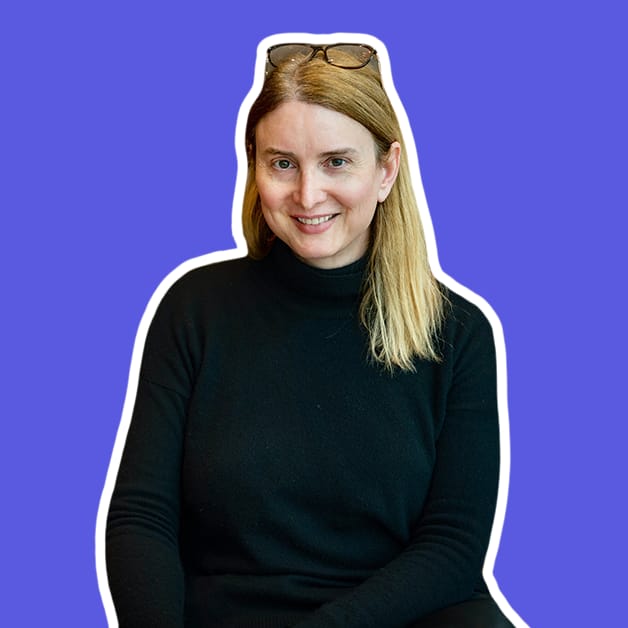You are Switzerland's best-known venture capitalist and investor. Your life revolves around money. Are you hungry for money?
No, money is a means to an end. It enables a certain comfortable standard of living. Beyond that, I have no money ambitions. Money doesn't make me happy. The job makes me happy.
But your job is all about big money. Your company has managed more than a billion francs.
I am not in the most lucrative sector of the venture capital industry. If I were only looking to maximize profits, I wouldn't have chosen the cleantech sector, and I wouldn't invest in a meaningful way. For me, impact is just as important as financial return. In the long term, investors in the cleantech sector can expect an annual return of 15 percent. In other industries, they want to increase their money tenfold. In investing, we're aiming for a fourfold return. But cleantech startups are more likely to survive than other companies. In other industries, only one in ten start-ups makes it, but in the cleantech sector, the chances of survival are higher.
So you're one of the good VCs? The industry doesn't have the best reputation, it's viewed as opportunistic, money-hungry.
I see venture capital very differently: collaboratively. It's difficult, but it's also exciting. It's like a pull that you can't escape. You suffer and live along with the start-ups. We sweat blood and water together, go through thick and thin. We're all in the same boat. It's an intensive, temporary co-entrepreneurship. On average, we stay in business together for seven years. Sometimes we even develop close friendships and attend each other's family events. I don't have any traditional vacations. I'm always available.
So it's just workations?
More likely work-life blending, the merging of work and private life. Seriously, I need to be there for the founders. These small start-ups always run into big problems.
For instance?
You know "shit happens": a lot of unforeseen things always happen. They lose their biggest customer, there are production errors, or the most important investor pulls out one day before the closing. Young companies live from hand to mouth.
What does that mean for you?
I have daily meetings with the boards and management. One of my investments was about to go public when everything went wrong due to the volatile market climate, and we had to raise an emergency financing round. Of course, we also make phenomenal exits, but at the same time we also have many near-death experiences. You see, I can't go on vacation…
As a founder myself, you're scaring me a bit right now...
Yes, many founders would probably not even start if they knew in advance how difficult it would be. They are optimists by nature. And they always plan their finances very optimistically. We know this, of course, because we've been in business for decades. Unfortunately, there are almost no female founders. I look at thousands of business plans every year, but unfortunately there are very few women in the cleantech sector.
There are also extremely few female investors. Have you ever reached your limit?
If you allow a bad investment to paralyze you, you're in the wrong job. In the twenty years I've been doing this, I've only had one example where the startup lied to us. The founder was a tech geek. In order to cut product expenses, he designed a bug. And he couldn't admit he made a mistake. But it wasn't a calculated fraud.
In this country, this courage to take risks, to invest, does not exist culturally. The venture capital scene is practically non-existent. Can we nevertheless develop into a start-up nation?
I would put it this way: Switzerland still has a lot of potential…
Men account for more than 90 percent of venture capital partners. How does your private environment react to your profession?
At private events, women of my generation are never asked what they do for a living. The guests turn to the man and ask about his work. The fact that I could also be fully employed is ruled out. I can survive an entire evening without anyone finding out what I do. Switzerland is a very conservative country. My husband now proactively and proudly tells people what I do.
Who talked to you about money at home?
I grew up in a poor family of immigrants from Italy and France. They immigrated to the U.S. to make money, to live the American dream. We lived in Chicago, in a typical blue collar working class family. Once I demanded to go skiing. That's when they laughed at me and asked if I actually meant to be a princess. But my parents managed to get four kids into college.
What did they teach you about money?
There ain't no such things as a free lunch: Everything you want to achieve in life you have to work for. My first job was at Union Bank of Switzerland (now UBS) in Chicago. There I checked companies for their creditworthiness. I was really embarrassed to tell my parents that I was earning money just by sitting there, that it wasn't physical work.
But from the SBG you got your Swiss connection?
Yes, later I was transferred to New York to the World Trade Center. That's where I met my Swiss husband.
And Switzerland. That's where you made the big money deals at Sulzer.
I love the industry. The '90s were an exciting time. There were acquisitions, mergers, restructurings: I must have bought or sold 50 companies.
Did you never get in trouble?
I was indeed different from everyone else, a foreigner who had never been in the Swiss military. I therefore enjoyed a certain fool's freedom. But only because of my "male allies." They were all men with daughters, by the way.
You have a son of your own. Money is your world, could you pass this talent on to him?
So far, he's been very disciplined and clever with money. I started giving him pocket money at a very young age. I never had a child who would throw himself on the floor and scream in the supermarket. Even as a toddler, I gave him a franc or two, and he had to figure out for himself what candies he could afford with that. A difficult decision-making process, as you can imagine. When he couldn't do math yet, he would often run back and forth between the shelves and the cash register, asking the staff.
What have been your personal experiences with money advisors, such as banks?
I feel neglected. In the majority of cases, the man may still be the main breadwinner and make money decisions, but that is changing. I'm tired of calling attention to myself, "Hi, I'm here too, and I'm making pretty good money, by the way." These customer events are also so obviously aimed only at men: golf tournaments, Formula 1 or wine tastings. It's all designed for male customers. It's a pattern, and everything is based on that. Whether bank advisors or car salesmen, the patterns are the same.
What do you mean?
I wanted to buy a BMW. My husband accompanied me there. Once at the dealership, the salesman completely ignored me, didn't even talk to me. I also wanted a special red. And he promptly looked back at my husband and said, "You don't want a red car." Then we changed to Audi. And again the salesman wanted to address my husband, but he shouted from a distance, "Talk to her, please!" Which he did, but always as if my husband wanted to buy me the car as a gift. The economy and its salespeople are just programmed that way. That's how pattern recognition works.
Time to break up those old patterns. Thanks for the conversation!



.jpg-.jpg)








